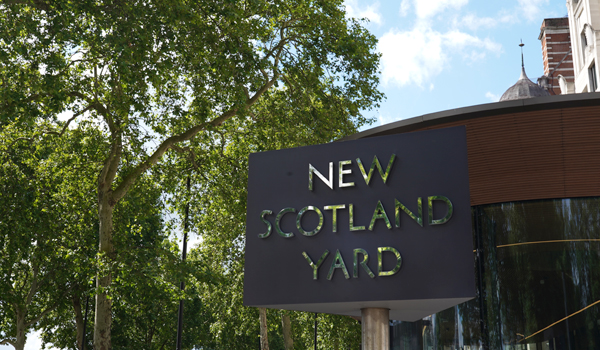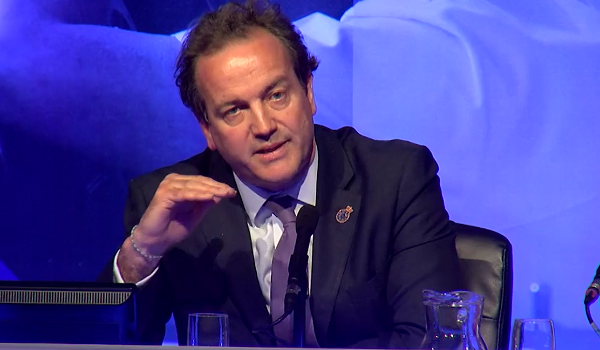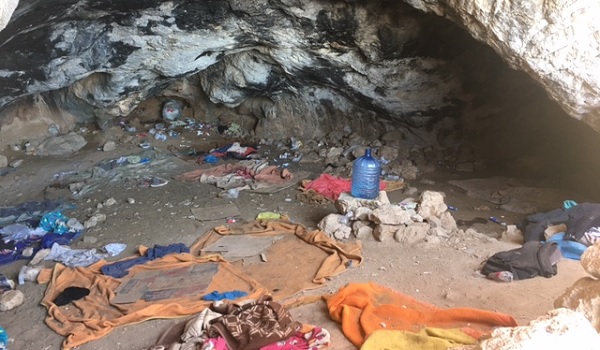HMICFRS calls for 'radical action' to tackle epidemic of violence against women and girls
Police should immediately make the “relentless pursuit” of those committing acts of violence against women and girls a national priority, an interim report by Her Majesty’s Inspectorate of Constabulary and Fire and Rescue Services (HMICFRS) has recommended.
HMICFRS said there is an epidemic of offending against women and radical cross-sector reform and a whole-system approach is needed to tackle it, involving not only the police but also other partners such as the Crown Prosecution Service, health, social care and education.
It further found that while the police have made “vast improvements” over the past decade in how they respond to such crimes, their ability to continue this progress should enhanced.
HMICFRS’s findings are from its interim report, released today (July 7) to help inform the Government’s violence against women and girls strategy.
After reviewing evidence from previous inspections, consulting with experts from policing, government and victim support organisations, and analysing the progress made by the police, HMICFRS has recommended that transformation of the whole system is needed, including:
• The Government, police, criminal justice system and public sector should immediately and unequivocally commit to prioritising the response to violence against women and girls, supported by sufficient funding and mandated responsibilities;
• The police should make the relentless pursuit and disruption of perpetrators a national priority, and their capability and capacity to do this should be enhanced; and
• Funding and structures should be put in place to ensure victims receive tailored and consistent support.
Her Majesty’s Inspector of Constabulary Zoë Billingham said: “We are living during a national epidemic of violence against women and girls. The prevalence and range of offending and harm is stark and shocking. We are clear that the police have made great progress over the last decade against a backdrop of greater demand, and we want forces to maintain this momentum and build on these improvements. But there is still evidence of inconsistent support for victims and low prosecution rates.
“Offending against women and girls is deep-rooted and pervasive in our society. Urgent action is needed to uproot and address this and police cannot solve this alone. There must be a seamless approach to preventing and tackling violence against women and girls across the whole system, including education, local authorities, health, social care and those from across the criminal justice system – with all agencies working together.
“A radical and immediate change in approach is needed, supported by sustained funding and mandated responsibilities, potentially through a new statutory framework. We need to end violence against women and girls by preventing it, supporting victims, and bringing perpetrators to justice with the full force of police powers and the law.”
Paul Griffiths, President of the Police Superintendents’ Association said: “This report reveals a clear and stark need for urgent acction to address the deep-rooted issues that are leaving women and girls at risk of real harm.
“Police must play a core role within this, but it is not a matter of enforcement alone. This is about a concerted, joint effort to understand and address the issues that have enabled violence against women and girls to have become a part of society. We cannot accept that this is simply a reality for thousands of people – we must do more.
“Our association supports this approach entirely and we’re committed to providing the insight and experience of our members to influence national work to improve the funding and structures that will drive forward this urgent work.”
National Chair of the Police Federation of England and Wales John Apter said: “The findings of this interim report come as no surprise. Lack of resources, increasing workloads and the impact of a decade of austerity have often hampered the efforts of our members to help the most vulnerable in society.
“Police officers are doing the very best they can with the limited time and resources they have, but on key issues such as violence against women and girls, there needs to be improved funding and more training or it simply won’t be enough.”
The report also found that court delays were a significant problem, and many cases reported by victims do not reach the point of charge and prosecution.
Mr Apter added: “Policing is often criticised for failings which are not solely an issue for policing. It’s a much wider criminal justice problem, and this needs fixing. My colleagues shouldn’t face anger from victims for the failings of other agencies – those agencies need to step up and play their part.
“This isn’t something that can be solved overnight, or by just recruiting more officers. It’s a complex issue that demands time, attention, and money.”
The final report will be published in September.







